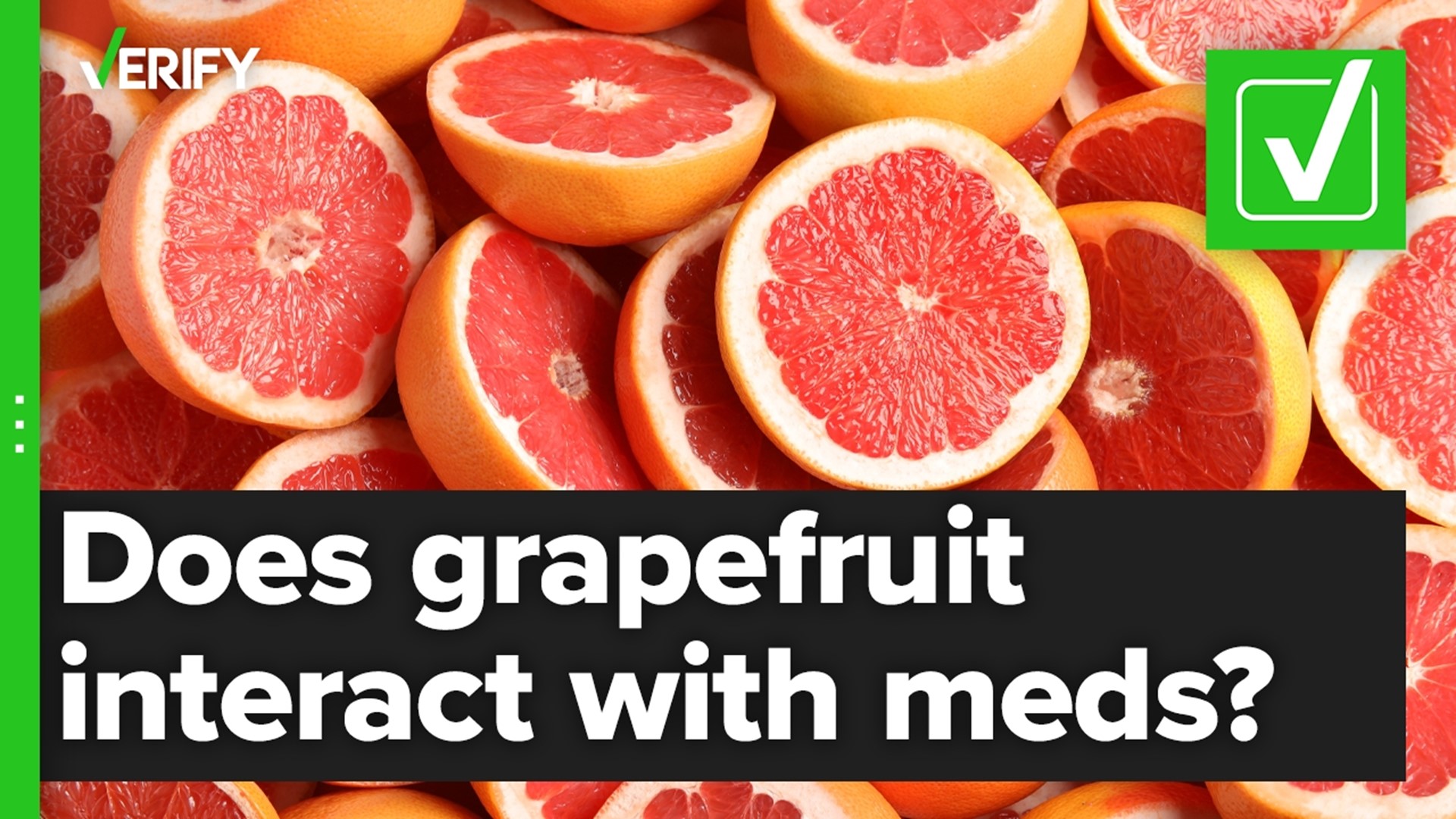Grapefruit season is well underway in the United States. But author Caroline Moss claimed in a recent tweet that people taking antidepressants may want to steer clear of the citrus fruit. Moss also suggests that medical professionals in the U.S. are not required to inform people that they should avoid eating grapefruit if they are taking certain medications.
THE QUESTION
Can grapefruit negatively interact with some medications?
THE SOURCES
- U.S. Food and Drug Administration (FDA)
- Harvard Health
- Mayo Clinic
- Dr. Christine Cadiz, assistant professor in the College of Health Sciences at the University of California Irvine
THE ANSWER
Yes, grapefruit can negatively interact with some medications.
WHAT WE FOUND
Harvard Health, the U.S. Food and Drug Administration (FDA) and the Mayo Clinic all say grapefruit can interfere with several kinds of prescription medications.
According to the FDA, many drugs are broken down, or metabolized, with the help of an enzyme called CYP3A4 in the small intestine. The FDA says grapefruit juice can block the action of intestinal CYP3A4, “so instead of being metabolized, more of the drug enters the blood and stays in the body longer.” This could result in a person having too much of the drug in their body.
“A medication that's broken down too quickly won't have time to work,” Katherine Zeratsky from the Mayo Clinic writes. “On the other hand, a medication that stays in the body too long may build up to potentially dangerous levels.”
The FDA says grapefruit can also lessen the body’s absorption of certain medications.
“Although scientists have known for several decades that grapefruit juice can cause too much of certain drugs in the body, more recent studies have found that the juice has the opposite effect on a few other drugs,” according to the FDA. “Instead of changing metabolism, grapefruit juice can affect proteins in the body known as drug transporters, some of which help move a drug into our cells for absorption. As a result, less of the drug enters the blood and the drug may not work as well.”
The list of medications that can negatively interact with grapefruit includes commonly prescribed medications that:
- Fight infection
- Reduce cholesterol
- Treat high blood pressure
- Treat heart problems
- Prevent organ rejection
- Treat anxiety
- Control seizures
- Minimize motion sickness
- Treat erectile dysfunction
- Replace hormones
- Reduce cough
- Control pain
Harvard Health, the FDA and the Mayo Clinic recommend talking to your health care provider or pharmacist to find out if your specific prescription may be affected by grapefruit, how much grapefruit juice is safe for you to drink and if there are any other fruits or juices that may also affect your prescription in a similar way to grapefruit juice.
The FDA notes it has required that some prescription and over-the-counter drugs include warnings against drinking grapefruit juice or eating grapefruit while taking the drug. Dr. Christine Cadiz, an assistant professor at the University of California Irvine, told VERIFY pharmacists are required to counsel patients on new prescriptions in some states.
“I would advise people in the general public, when they pick up new prescriptions, not to decline the counseling that's provided by the pharmacist,” Cadiz said. “Sometimes you miss really important information about how to take the medication, about how to store the medication and about what types of foods and drinks to avoid with those medications.”
More from VERIFY: No, you shouldn't take expired cold medicine

